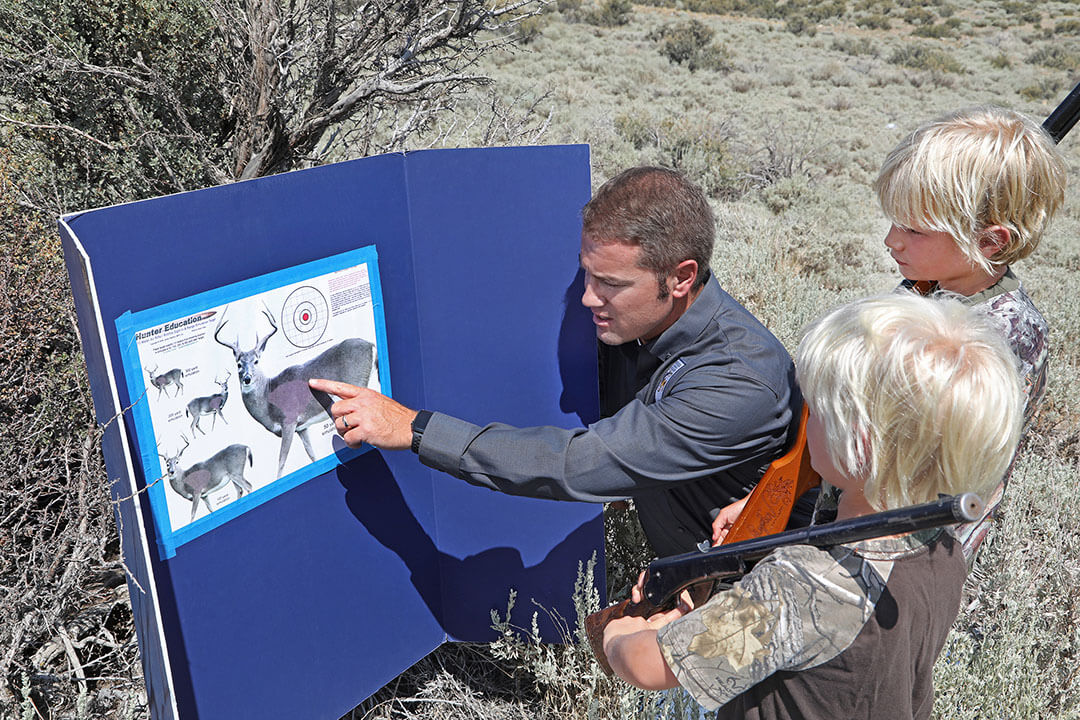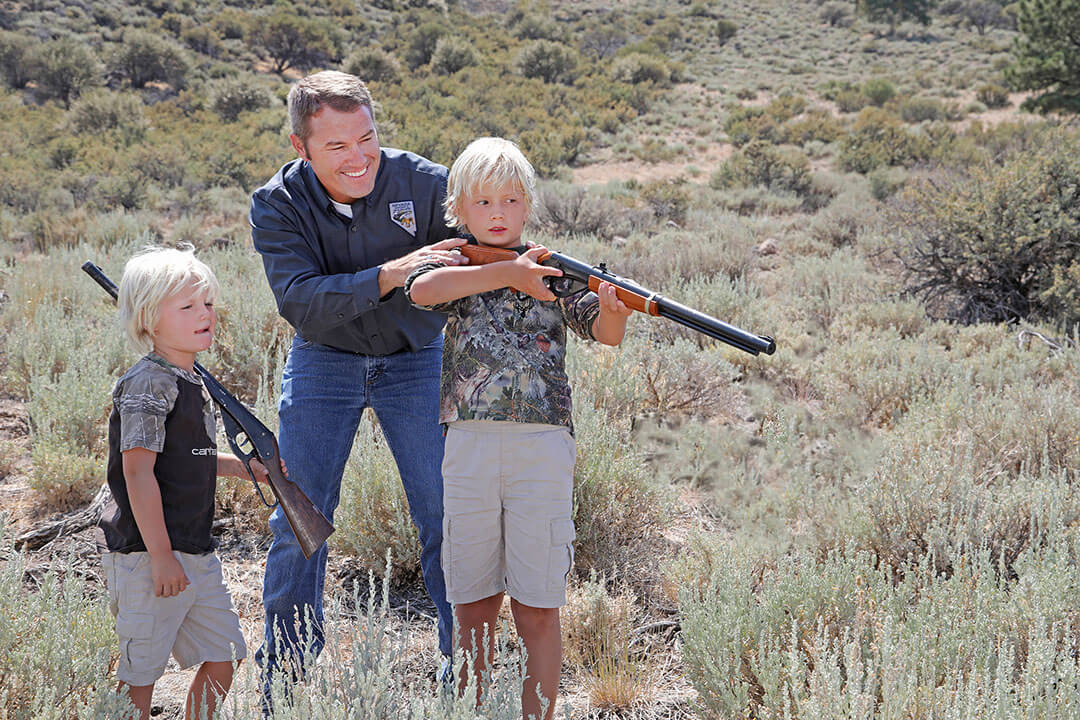Teaching youths how to hunt responsibly.
Hunting is a vital skill that our ancestors relied upon. Today, families continue the practice to provide food for the table and life lessons for the soul. Whether through a hike to scout for a giant buck, instruction on gun safety, or enjoying a meal honoring the kill, teaching children and teens to hunt responsibly is paramount.
Aaron Keller, statewide outdoor education coordinator for the Nevada Department of Wildlife, has hunted his whole life. He now has two young boys, ages 5 and 7, who are learning the sport. When it comes to teaching his children and any others interested in the sport, Keller’s primary focus is safety.

“The main goal of hunter education in Nevada is safety,” he explains. “We don’t want to see any accidents happen. Growing up around guns my whole life, I know the importance of treating every gun as if it’s loaded and not treating them like toys.”
Four Rules of Firearm Safety
To receive a hunting license, anyone born after Jan. 1, 1960, and older than 12 years of age must take a hunter education course. During the in-person classes, volunteer instructors and participants of all ages discuss several topics, with the primary goal of conveying the four cardinal rules of firearm safety:
- Treat every firearm as if it were loaded.
- Always keep the muzzle pointed in a safe direction.
- Be sure of your target and what’s beyond it.
- Keep your finger outside the trigger guard until you’re ready to shoot.
“During the course, we cover these so many times,” Keller notes. “As participants are going through scenarios in which they’re handling firearms, crossing the fence, or getting out of the vehicle, the instructor is constantly looking for this. Because we don’t want someone to go out on their own, treat a firearm wrong, and potentially hurt themselves or someone else.”
Keller also stresses the importance of the quality time hunting provides.
“Hunting, fishing, hiking, camping trips — anything where the focus isn’t on technology — are so important,” he says. “It’s about being around each other and experiencing the outdoors together.
“Teaching kids to hunt should be more in the broad sense, where your sole focus is not on killing something,” he continues. “It’s more about having a good experience, providing memories and stories to tell.”
For details about hunting in Nevada, including laws and hunter education courses, visit Ndow.org.
With two young boys of their own, Heidi Bethel and her husband, Masten, see the value of an upbringing involving hunting and are eager to guide them in a safe, responsible way.


